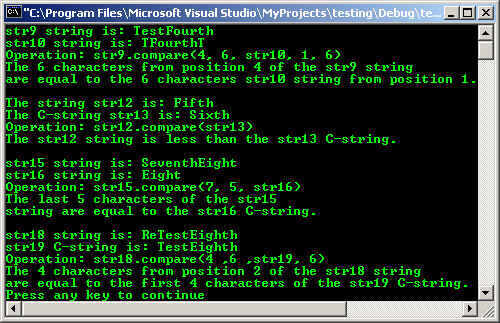title is self explanatory how do i convert it to a std::string?
all this LP stuff makes my brain hurt...
To_string Is Not A Member Of Std Dev C Free
- 7 Contributors
- forum 11 Replies
- 1,592 Views
- 3 Years Discussion Span
- commentLatest Postby easysirLatest Post
To_string Is Not A Member Of Std Dev C Download

Jun 22, 2014 How to use the string::getline STL function in Visual C Content provided by Microsoft Note Microsoft Visual C.NET 2002 and Microsoft Visual C.NET 2003 support both the managed code model that is provided by the Microsoft.NET Framework and the unmanaged native Microsoft Windows code model. Error: 'tostring' is not a member of 'std' Je ne vois absolument pas pourquoi. Pourtant, ce code fonctionne parfaitement sur le site Coliru par exemple, alors qu'il utilise aussi GCC 4.9.2.
Recommended Answers
C++ Std String To Char
[code=cplusplus]
bool cvtLPW2stdstring(std::string& s, const LPWSTR pw,
UINT codepage = CP_ACP)
{
bool res = false;
char* p = 0;
int bsz;
To_string Is Not A Member Of Std Dev C Code
Jump to PostAll 11 Replies
minas11
title is self explanatory how do i convert it to a std::string?
all this LP stuff makes my brain hurt...
try static_cast<std::string>(the_LPWSTR_var);
or if it doesn't work
reinterpret_cast<std::string>(the_LPWSTR_var);
|